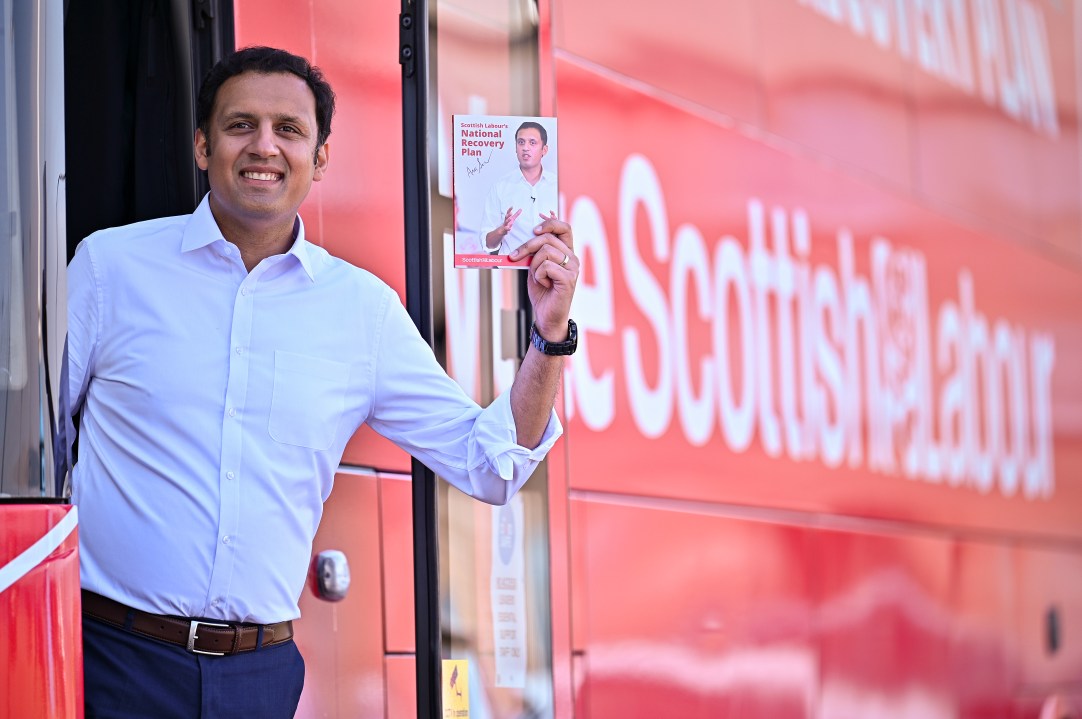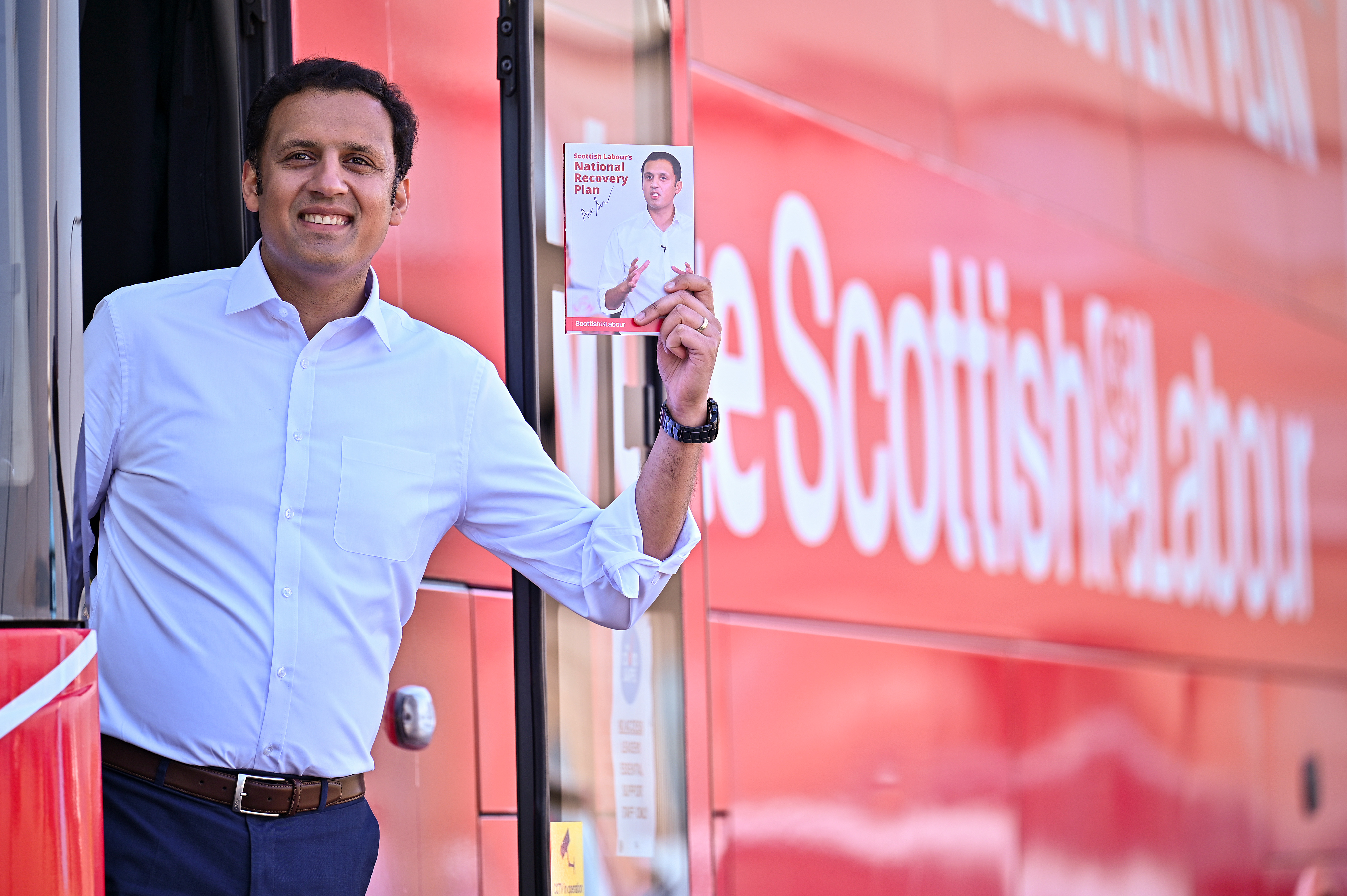Tony Blair had a breakthrough moment in the mid-1980s. As an opposition frontbencher, he observed that UK politics was paralysed by Margaret Thatcher. The Conservative party were in awe of her and Labour were mesmerised like a snake in front of a mongoose.
Politics was binary: are you for or against Thatcherism? Tony realised that the open ground in UK politics was what happened after Mrs Thatcher. Thus was born the ‘third way’, which smashed right through the sterile binary debate.
Scottish politics today is similarly gripped by a barren and futile dichotomy: are you for or against a second independence referendum? The question is, on the face of it, irrelevant to elections for a devolved institution, since the constitution of the UK is reserved to Westminster. The desire to place this question at the heart of the elections to the Scottish parliament is driven by nationalist politicians leading a country through the Covid pandemic – Nicola Sturgeon and Boris Johnson.
Anas Sarwar is being given the chance to box off the constitutional question and project a positive future
It’s obvious why the Prime Minister and First Minister want to focus on indyref2. It gives each a boogie monster to mobilise their respective bases. It distracts attention from the fact that they have both presided over some of the worst pandemic death rates in Europe. And it marginalises Scottish Labour under new leader Anas Sarwar.
The SNP and the Conservative party are united in their desire to talk about anything other than the services provided – badly, in the main – by the Scottish government. So, both parties are happy to see Mr Sarwar being asked about whether there should be a second referendum. However, they are far less delighted to observe the skill with which he answers that, while he doesn’t favour a second vote, this is actually the time to focus on a recovery for all of Scotland. Time, he continues, to unite the country. Covid didn’t distinguish between Yes and No voters, or Remain and Leave; nor will the coming unemployment when furlough stops.
‘It’s the economy, stupid!’ remains one of the abiding rallying cries in politics. It’s not just that President Biden’s trillion dollar recovery package has put government investment in infrastructure at the heart of the economic debate. It’s also that in Scotland, as in the UK, how to increase growth is the only game in town. Growth and productivity bring jobs, rising living standards, and the money to invest in public services. And it’s the space being left open for Anas Sarwar to own.
Both Boris Johnson and Nicola Sturgeon believe in economic ‘shock therapy’. Their policies for growth are remarkably similar: leave your largest market and create barriers with it, while achieving unprecedented growth. Or, as the Underpants Gnomes put it in South Park: ‘Phase 1: collect underpants. Phase 2: ? Phase 3: Profit.’
Deftly, like President Biden, Mr Sarwar acknowledges division – the half of the country who don’t agree with him on the constitution – and commits to healing, with a programme that’s for all who live in Scotland.
And it’s a single transferable move. Pivot from the constitution to investing in the infrastructure for getting to net zero – whether charging points for electric vehicles or home insulation and modern heating – which will generate good jobs that can’t be offshored. Or pivot to the modern social care infrastructure Scotland needs for an ageing population. Time and again, Anas Sarwar is being given the chance to box off the constitutional question, position himself as unifying, project a positive future, and have a kick at the SNP record on the way through.
In the end, this is the point. The pandemic has been the proving of devolution. It has been what Scottish Labour always argued it would be: the best of both worlds. The firepower of the Treasury has supported Scottish workers, while Scots have chosen their own health leadership. (And while vaccination has been a great UK government success story, equally it has cruelly exposed European Union failures.)
The task for the next Scottish parliament is to cut drug deaths, restore the quality of Scottish education, reduce health inequalities, restore employment, and more. What Nicola Sturgeon and Boris Johnson want is another five years of suspended animation – the pantomime politics of ‘Oh no, you can’t’ versus ‘Oh yes, I can’. Anas Sarwar offers a third way: neither yes nor no, but ‘we must and we can’.








Comments